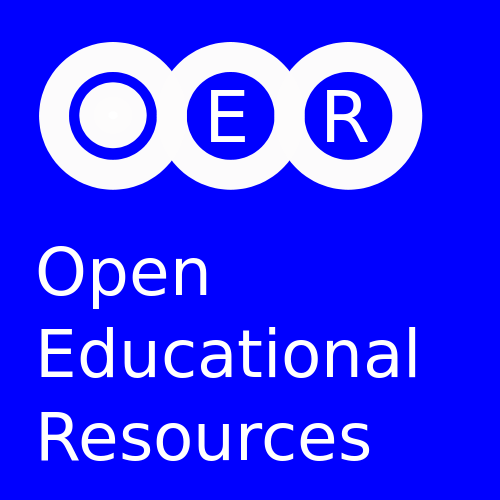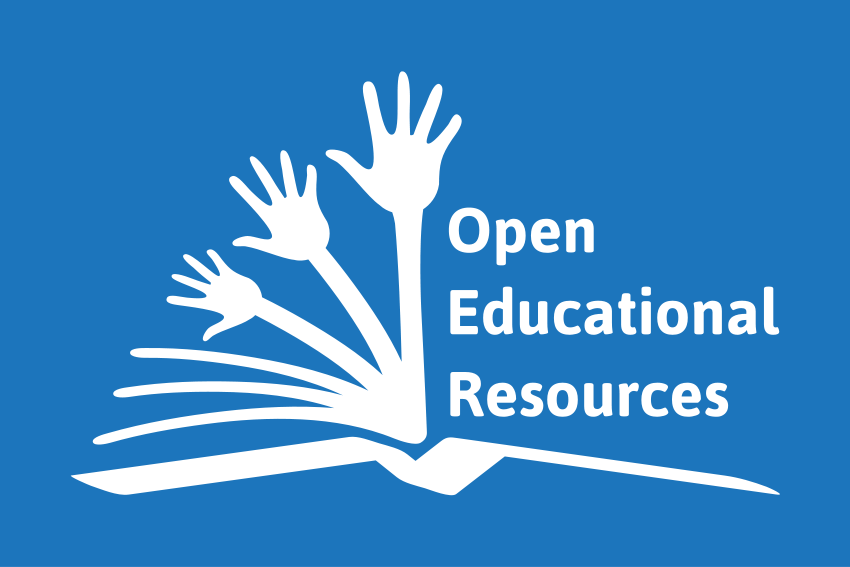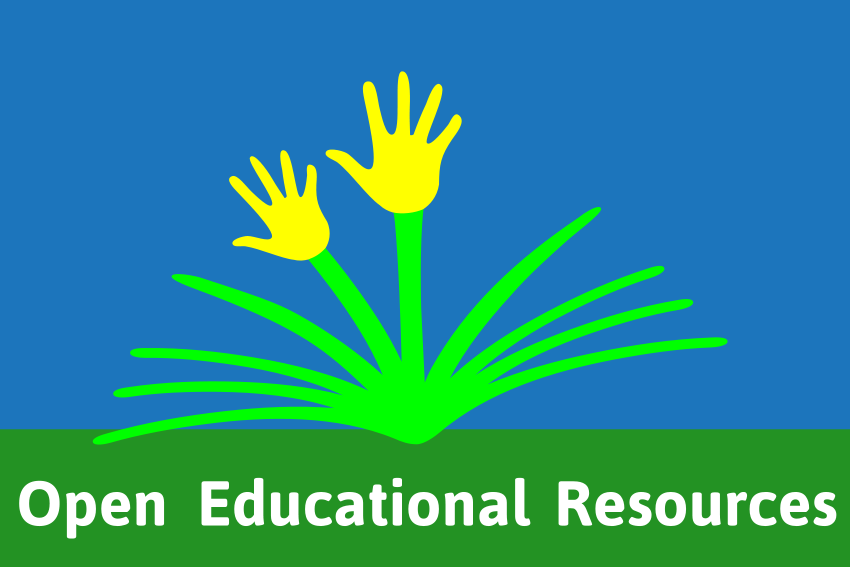Difference between revisions of "Open Education Resources"
(→Countries: Could not get in on Uruguay RFP) |
(OER Logos) |
||
| Line 1: | Line 1: | ||
| − | Open | + | Open Educational Resources (OERs) are digital replacements for textbooks available under some form of Free license, such as Creative Commons. There are many projects to create OERs, including the Sugar Labs [[Replacing Textbooks]] project, and projects of state and national governments, NGOs, professional associations, and individual contributors. |
Most OERs are PDFs of existing content, including printed textbooks, but there are also innovative projects to produce interactive OERs using a variety of software, including Sugar, Logo, and Smalltalk, and to rethink educational content based on research into child development and computers in education. Much more research and development will be needed in this direction. | Most OERs are PDFs of existing content, including printed textbooks, but there are also innovative projects to produce interactive OERs using a variety of software, including Sugar, Logo, and Smalltalk, and to rethink educational content based on research into child development and computers in education. Much more research and development will be needed in this direction. | ||
Globally, there is a need for OERs in several hundred subjects. Each country needs about 100 for 12 grades, usually divided into semesters, with five subjects taught at a time. Local content is needed for topics such as health, history, geography, literature, civics, and agriculture in more than 190 countries, some of which can share large portions. Materials for learning to speak, read, and write numerous languages are needed. | Globally, there is a need for OERs in several hundred subjects. Each country needs about 100 for 12 grades, usually divided into semesters, with five subjects taught at a time. Local content is needed for topics such as health, history, geography, literature, civics, and agriculture in more than 190 countries, some of which can share large portions. Materials for learning to speak, read, and write numerous languages are needed. | ||
| + | |||
| + | [[File:OERlogo.svg]] | ||
| + | |||
| + | Public Domain OER logo from Wikimedia Commons | ||
==External Links== | ==External Links== | ||
| Line 22: | Line 26: | ||
* [http://www.curriki.org/xwiki/bin/view/Main/Browse Curriki] free and open K-12 resources | * [http://www.curriki.org/xwiki/bin/view/Main/Browse Curriki] free and open K-12 resources | ||
| − | * The [http://www.librarianchick.com/ Librarian Chick catalog] of free digital | + | * The [http://www.librarianchick.com/ Librarian Chick catalog] of free digital educational resources |
* The [http://www.clrn.org/fdti/ California Free Digital Textbook Initiative] at high school level | * The [http://www.clrn.org/fdti/ California Free Digital Textbook Initiative] at high school level | ||
| Line 38: | Line 42: | ||
* [http://www.col.org/ Commonwealth of Learning] | * [http://www.col.org/ Commonwealth of Learning] | ||
| − | * [http://wikieducator.org/OERF:Home Open | + | * [http://wikieducator.org/OERF:Home Open educational Resource Foundation] |
* [http://lemill.net/ LeMill] Web community for finding, authoring and sharing open educational resources in multiple languages | * [http://lemill.net/ LeMill] Web community for finding, authoring and sharing open educational resources in multiple languages | ||
| Line 74: | Line 78: | ||
* [http://openeducation.zunia.org/post/open-educational-resources-oers/ World Bank Zunia OER discussion] | * [http://openeducation.zunia.org/post/open-educational-resources-oers/ World Bank Zunia OER discussion] | ||
| + | |||
| + | ===Other OER Logos=== | ||
| + | |||
| + | [http://www.unesco.org/new/en/communication-and-information/access-to-knowledge/open-educational-resources/global-oer-logo/ UNESCO OER Logos] under Creative Commons-BY-SA licenses permitting modifications, including further translations. | ||
| + | |||
| + | [[File:UNESCO_OER_logo.svg]] | ||
| + | |||
| + | UNESCO English OER logo | ||
| + | |||
| + | [[File:Oer-rmx.svg]] | ||
| + | |||
| + | Remix of UNESCO English OER logo | ||
Revision as of 20:54, 26 February 2012
Open Educational Resources (OERs) are digital replacements for textbooks available under some form of Free license, such as Creative Commons. There are many projects to create OERs, including the Sugar Labs Replacing Textbooks project, and projects of state and national governments, NGOs, professional associations, and individual contributors.
Most OERs are PDFs of existing content, including printed textbooks, but there are also innovative projects to produce interactive OERs using a variety of software, including Sugar, Logo, and Smalltalk, and to rethink educational content based on research into child development and computers in education. Much more research and development will be needed in this direction.
Globally, there is a need for OERs in several hundred subjects. Each country needs about 100 for 12 grades, usually divided into semesters, with five subjects taught at a time. Local content is needed for topics such as health, history, geography, literature, civics, and agriculture in more than 190 countries, some of which can share large portions. Materials for learning to speak, read, and write numerous languages are needed.
Public Domain OER logo from Wikimedia Commons
External Links
Countries
- Bangladesh is the first country we know of to digitize a complete set of textbooks for grades 1-12. Resources listed below.
- Uruguay is seeking up to 1,000 digital learning resources in a Request For Proposals (RFP). The Sugar Labs Replacing Textbooks program wanted to offer some to them, but it turned out to be impractical.
- South Korea has announced a plan to digitize all of its textbooks and to provide all students with computers.
Sources and Directories
In no particular order. Please add more if you find them. How do these facilities compare with one another?
- Curriki free and open K-12 resources
- The Librarian Chick catalog of free digital educational resources
- The California Free Digital Textbook Initiative at high school level
- MERLOT (Multimedia Educational Resource for Learning and Online Teaching)
- LeMill Web community for finding, authoring and sharing open educational resources in multiple languages
- OpenCourseWare Consortium at university level
- Math Links - educators sharing interesting resources around the teaching and learning of mathematics
- OER Recommender 110,000 listings
- Bangladesh National e-Content Repository in Bangla. Story: PM opens e-content repository. 30,000 teachers, 148 government organisations and 50 local and foreign non-government organisations. 50,000 pages, planned to increase to 5,000,000.
- e-Book ::. ই-বুক জগতে স্বাগতম in Bangla. Story: PM opens online version of textbooks Access to Information (A2I) Project of the PM’s Office and the National Curriculum and Textbook Board (NCTB) jointly transformed 33 primary level and 73 secondary level textbooks into e-books in collaboration with the UNDP.
- Florida Standards - resources - collection of links to reviewed OERs - some are commercially created, some are open
- 150 Free Textbooks - list by subject, many are high school (Grades 9-12)
Commercial Publishers of OERs
It's true. Free OERs plus paid services.
- CK-12] Primary and Secondary
- Flatworld Knowledge College
Discussions
Other OER Logos
UNESCO OER Logos under Creative Commons-BY-SA licenses permitting modifications, including further translations.
UNESCO English OER logo
Remix of UNESCO English OER logo


